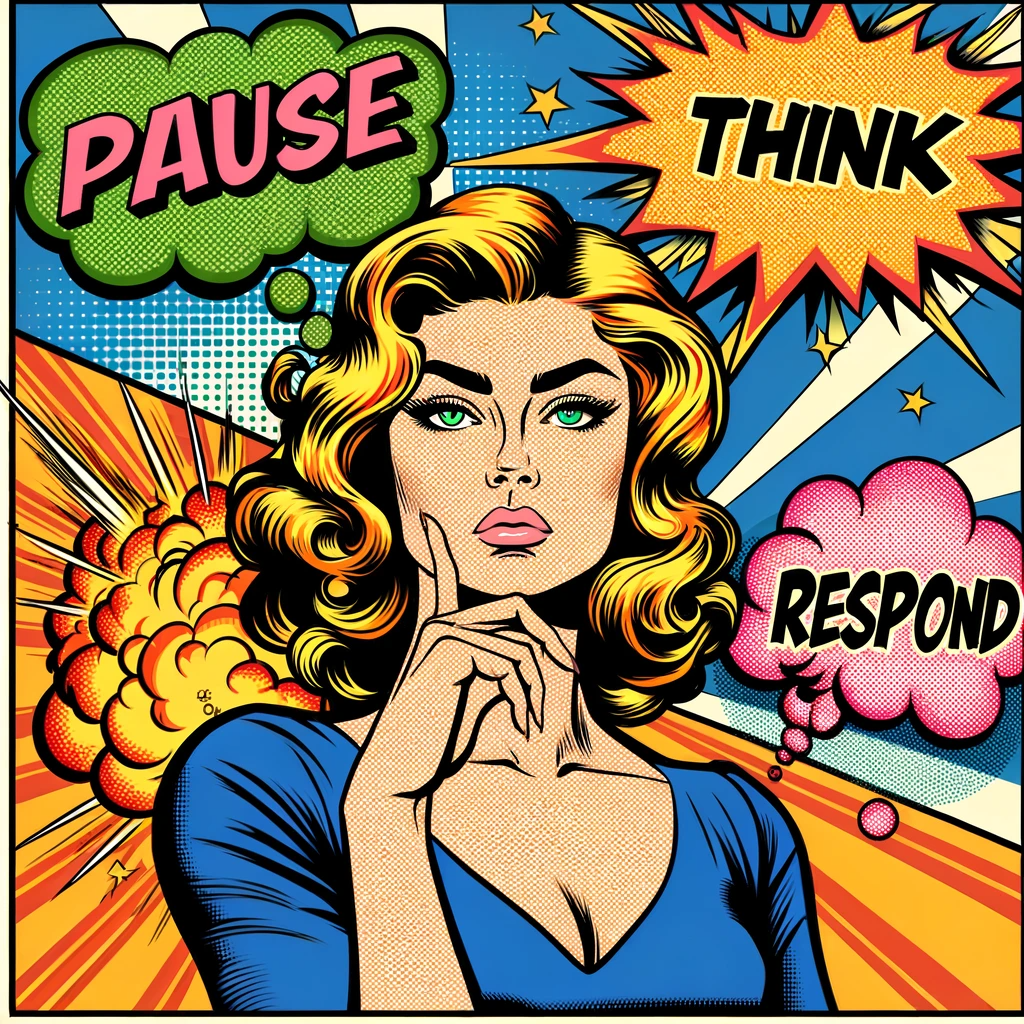
Imagine you’re strolling through the forest, the crunch of leaves underfoot, the air crisp and…
Imagine you’re strolling through the forest, the crunch of leaves underfoot, the air crisp and invigorating. Suddenly, a rustling in the bushes startles you, and your heart races. Instinctively, you freeze, preparing for whatever might emerge. This, my friends, is a prime example of reacting—a primal, unfiltered response to the unknown, driven by our deepest fears and beliefs.
Now, let’s weave this narrative into our daily lives, away from the forest and into the complexities of our modern existence. Here we stand, not among trees, but amidst the challenges and surprises life throws our way. The sudden rush of anger when a colleague takes credit for your work, the spike of frustration when traffic makes you late—these are the rustlings in the bushes of our world. In these moments, we often react, just as we did in the forest, driven by immediate emotions rather than thoughtful consideration.
But what if, in that split second of surprise in the forest, we paused, took a breath, and observed? What if, instead of assuming a threat, we waited to see a bird hop out, or a leaf flutter to the ground? This is the essence of responding. It’s about taking that breath, that moment to think, and then choosing how we wish to proceed based on our values and the outcomes we desire.
Reacting is easy; it’s instinctual and requires no thought. It’s the path of least resistance, where our emotions take the wheel, often leading us down a road of regret and what-ifs. It’s a defensive mechanism, hardwired into us to protect against perceived threats, but in the modern jungle, these threats are often not as they seem.
Responding, on the other hand, is an art. It’s the choice to take a beat, to feel the rush of emotions but not be swept away by them. It’s recognizing that in the space between stimulus and action lies our power to shape our destiny. This space is where growth happens, where we find our true strength and where we can align our actions with our deepest intentions.
So, how do we cultivate this art of responding? It begins with awareness. Like a deer attuned to every rustle of the forest, we must become mindful of our internal landscape. When anger flares or frustration mounts, observe it as you would a storm on the horizon—powerful, yes, but also passing.
Practice this awareness in moments of calm. Meditations that focus on mindfulness are not just exercises; they are rehearsals for life’s live performances. They teach us to observe our thoughts and emotions without getting entangled in them, preparing us to choose our responses in real-time.
Remember, every time you choose to respond rather than react, you are not just avoiding potential regret; you are actively crafting a life more reflective of who you wish to be. You are choosing a path through the forest that is thoughtful, intentional, and truly your own.
Let’s embrace the power of response. In doing so, we transform not only our interactions but our very lives, moving from a series of reactions to a symphony of deliberate actions. Herein lies our power, our growth, and our freedom.

Written by billee white
More From This Category
Embracing Triggers: A Roadmap to Healing and Stronger Relationships
Have you ever felt like triggers were just there to stir up trouble in your relationships? I used to think so too, until I discovered their true purpose. Let's look at an example of a common trigger: your partner forgets to text you back about their plans. Suddenly,...
Embracing Triggers: A Roadmap to Healing and Stronger Relationships
Have you ever felt like triggers were just there to stir up trouble in your relationships? I used to think so too, until I discovered their true purpose. Let's look at an example of a common trigger: your partner forgets to text you back about their plans. Suddenly,...
Embracing Triggers: A Roadmap to Healing and Stronger Relationships
Have you ever felt like triggers were just there to stir up trouble in your relationships? I used to think so too, until I discovered their true purpose. Let's look at an example of a common trigger: your partner forgets to text you back about their plans. Suddenly,...

Recent Comments